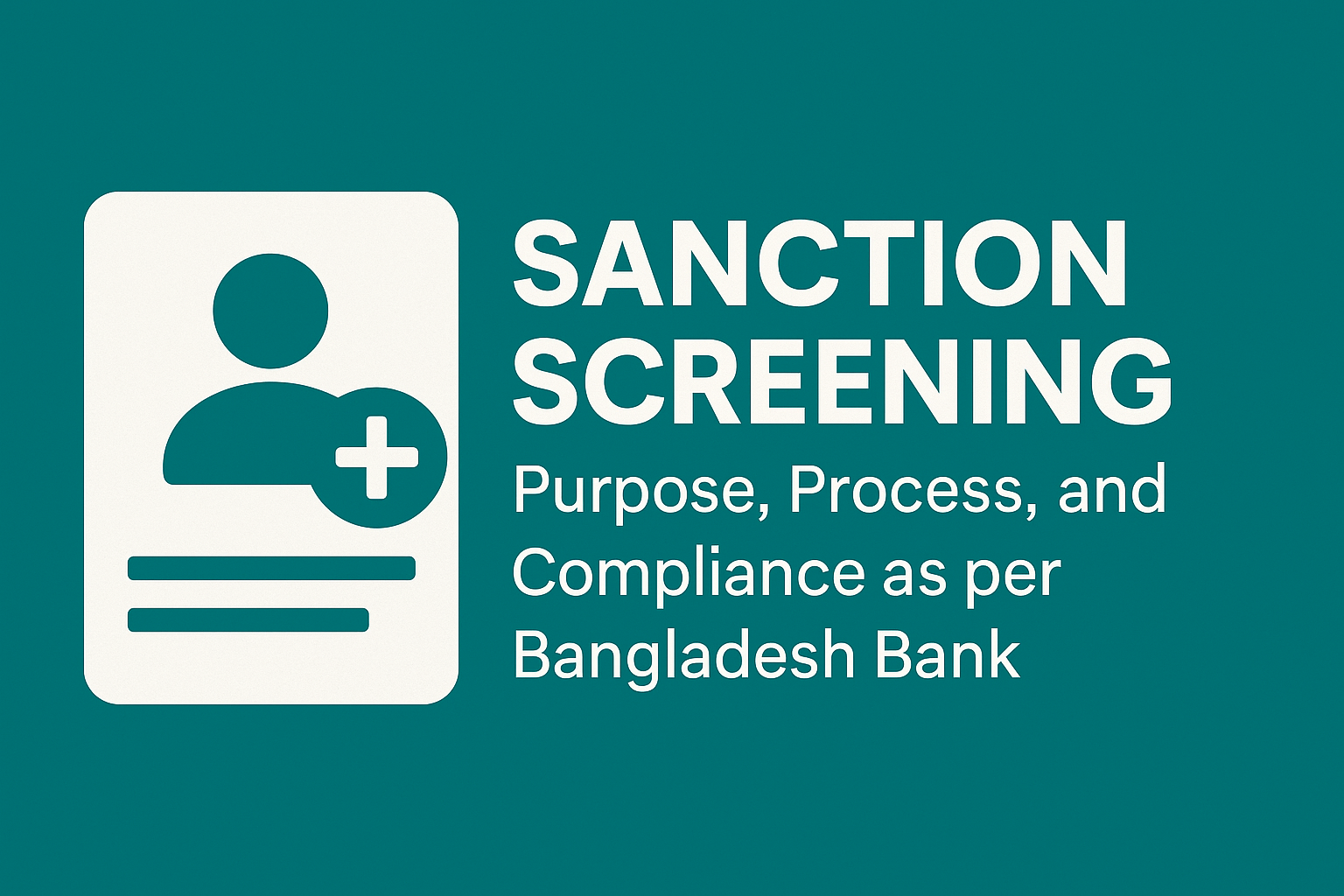Sanction Screening: Purpose, Process, and Compliance as per Bangladesh Bank
Published on: June 14, 2025
In the context of Anti-Money Laundering (AML) and Counter-Terrorism Financing (CFT), Sanction Screening plays a crucial role in ensuring that financial institutions do not unknowingly engage with high-risk or banned individuals or entities. Bangladesh Bank mandates all scheduled banks to implement proper screening protocols to maintain financial integrity and transparency.
🔍 What is Sanction Screening?
Sanction Screening is the process of comparing a customer’s details—such as name, date of birth, address, or identification numbers—against sanction lists issued by various authorities like:
- UN Security Council Sanctions List
- Office of Foreign Assets Control (OFAC)
- European Union Sanctions List
- Bangladesh Bank issued watchlists
- Other local or international regulatory bodies
📜 Bangladesh Bank Guidelines
According to the AML/CFT guidelines of Bangladesh Bank:
- All new and existing customers must be screened against applicable sanction lists.
- Banks must use updated screening tools or software to ensure real-time alerts.
- If a match is found, the account must be frozen, and the matter should be reported to the Bangladesh Financial Intelligence Unit (BFIU) immediately.
- Periodic re-screening of existing customers is mandatory.
- Sanction Screening should be an integral part of the KYC and CDD process.
⚙️ Types of Screening
- Name Screening: Comparing customer names against sanction lists.
- Transaction Screening: Checking details of incoming and outgoing transactions.
- Ongoing Monitoring: Regular re-screening of all accounts.
🛡️ Risk-Based Approach
Sanction screening should be conducted using a risk-based approach. High-risk customers or entities such as PEPs (Politically Exposed Persons) or those from high-risk jurisdictions should undergo enhanced due diligence (EDD).
💡 Importance of Sanction Screening
- Prevents financial crimes and terrorism financing
- Ensures compliance with regulatory bodies
- Protects the bank’s reputation and avoids penalties
- Builds trust with stakeholders and international partners
📌 Final Thoughts
Sanction Screening is not a one-time task—it’s an ongoing obligation. By implementing effective sanction screening systems in compliance with Bangladesh Bank guidelines, banks can stay ahead of financial crimes and ensure safe, secure banking services.
📚 Source: AML & CFT Guidelines – Bangladesh Bank
🔗 Visit our blog for more banking compliance resources.




